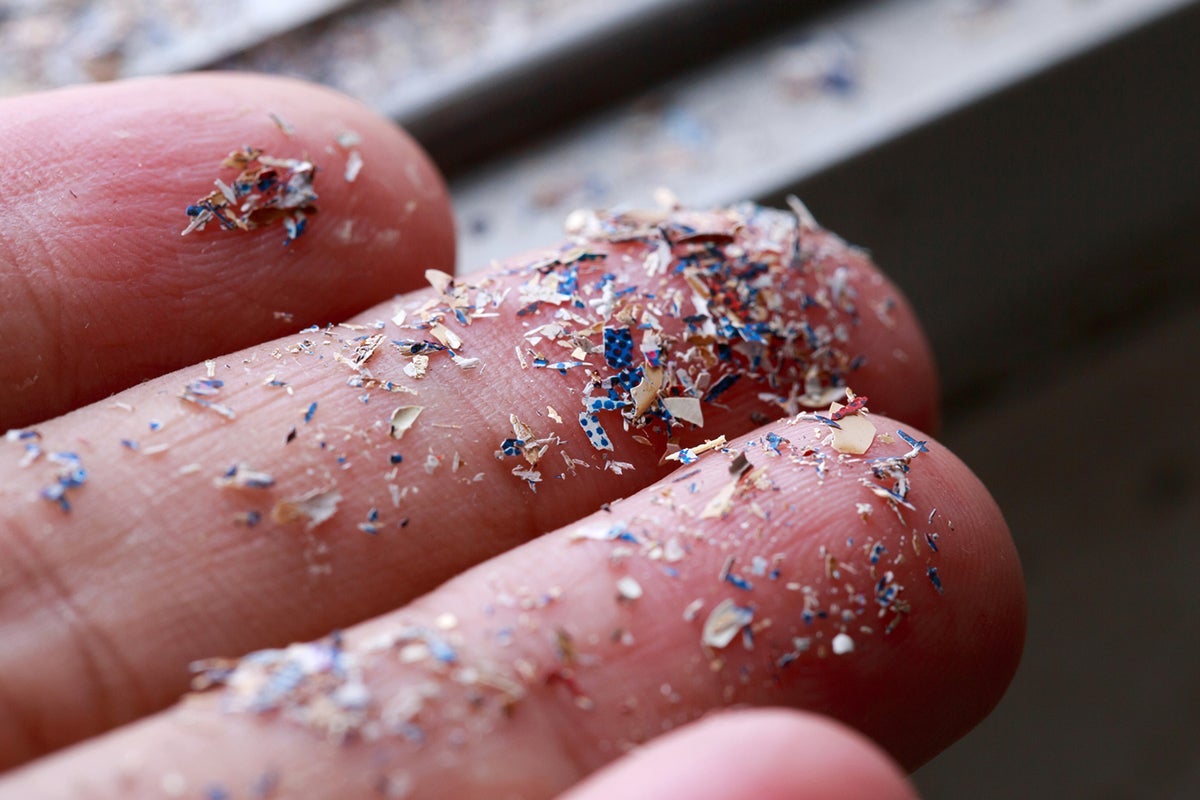Microplastics may disproportionately harm vulnerable communities

September 28, 2023 – Scientists are trying to learn more about the long-term health impacts of microplastics—tiny plastic particles in the environment that result from the disposal and breakdown of consumer products and industrial waste.
A September 21 article in Discover noted that the tiny plastic particles are everywhere, including in our bodies. The particles have been found in blood, baby poop, placentas, breastmilk, and in lung tissue, according to the article. A 2019 report found that people in the U.S. consume from 39,000 to 52,000 particles of microplastics every year. Some research has linked the particles with lung inflammation, shortness of breath, and a higher risk of lung cancer.
Mary Johnson, principal research scientist in Harvard T.H. Chan School of Public Health’s Department of Environmental Health, told Discover that vulnerable communities are particularly impacted by microplastics.
“In general, vulnerable populations are at even greater risk of the negative health impacts from the production, use and degradation of plastics,” she said. She noted that a 2021 United Nations report about global plastics pollution showed that Indigenous communities have been displaced for oil extraction, that water supplies in low-income communities have been contaminated, and that predominantly Black communities near oil refineries in the South have suffered health problems.
Read the article: Microplastics Are Everywhere. What Are They Doing to Our Health?


